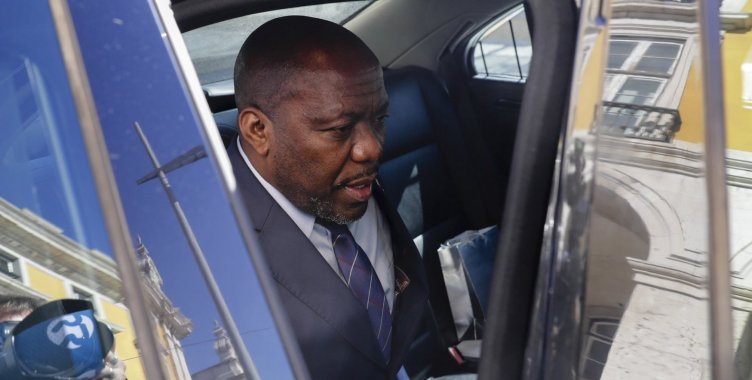The preliminary issue was raised on Friday, at the opening of the ordinary session of the plenary for the distribution of three cases and judgment of another six, taking into account "the facts that have been allegedly imputed to the revered presiding judge, Dr. Joel Leonardo".
As part of the deliberation taken by the plenary on March 7, the document reads, "he should step down from the presidency of the Plenary Sessions and appoint the venerable Counselor Judge President of the oldest chamber, for the purpose, while the investigations last ongoing".
Joel Leonardo, presiding judge of the Supreme Court, has been accused for months of being allegedly involved in acts of corruption, nepotism, mismanagement of the body and others, which has already led the Association of Judges of Angola to request an investigation by the Attorney General's Office (PGR).
Last week, the PGR tried to carry out searches in the building of the Supreme Court and the Superior Council of the Judiciary of Angola (CSMJ), which considered that the inspection, search and seizure procedures did not observe "the legal formalities".
The deliberation, signed by nine judges and sent to the President of the Republic, states that the judges of the court "do not abdicate their duty to judge, in such a way that it only did not happen, in today's session, due to the venerable judge chairman councilor not having agreed to the proposal of the Plenary".
The advisory judges also state that "they maintain their commitment to the State and citizens in order to continue to exercise the functions in which they were investors, always having the rule of law and democratic State as a priority".
Angolan justice is experiencing a profound crisis, due to the suspicions surrounding Joel Leonardo, on which neither the TS, nor the Attorney General's Office, nor the Government have commented.
At the beginning of the month, the ex-president of the Court of Auditors Exalgina Gambôa was "pushed" into resigning after being made a defendant and the President having published on the official page of the presidency that he had invited her to resign in view of the "high concern" with which he accompanied the "occurrences" involving his name.
In an interview with RFI, João Lourenço ruled out the existence of an institutional crisis, despite acknowledging the problems and not having chaired the formal opening session of the judicial year, which started, as established in the Constitution of the Angolan Republic.
"The Constitution says that the President of the Republic gives a speech in this act, but in view of the latest events, namely the courts, (...) I understood that until this matter is resolved I should not preside over this solemn session of the opening of the judicial year," he said.
The head of state underlined that he was referring specifically to what is happening in the Court of Auditors, "so that other courts are not thought of".
"There is also talk of the Supreme Court, but with regard to the Supreme Court I must say that, as far as I know, there are allegations of possible crimes, but that for now nothing proves the involvement, so far, of the venerable presiding judge of the same court and we cannot act, nor I as head of state and much less the Public Ministry, cannot act only based on what is said on social networks", he highlighted, at the time.
According to João Lourenço, "the Public Prosecutor's Office is doing its job, but until it finds out anything concrete, injustices cannot be committed".
The Supreme Court is the highest instance of the common jurisdiction of the judiciary of Angola, being one of the four superior courts in the country, alongside the Constitutional Court, the Court of Auditors and the Supreme Military Court.
The Supreme Court is composed of three bodies: the president, the plenary and the chambers.







